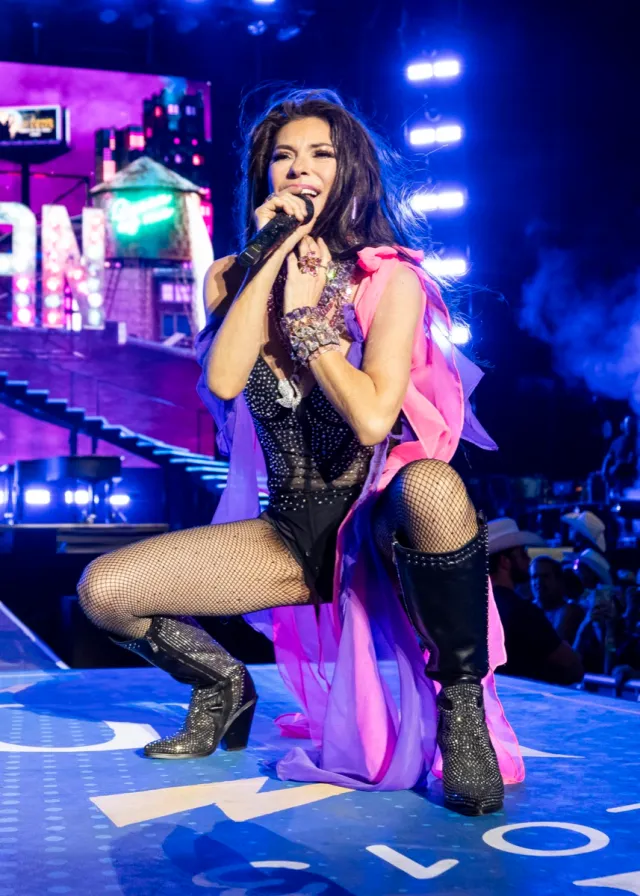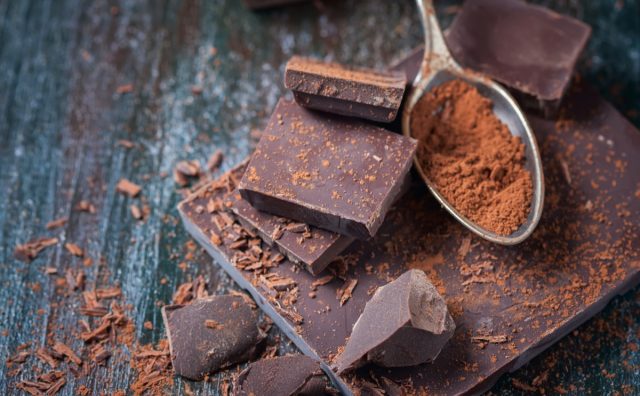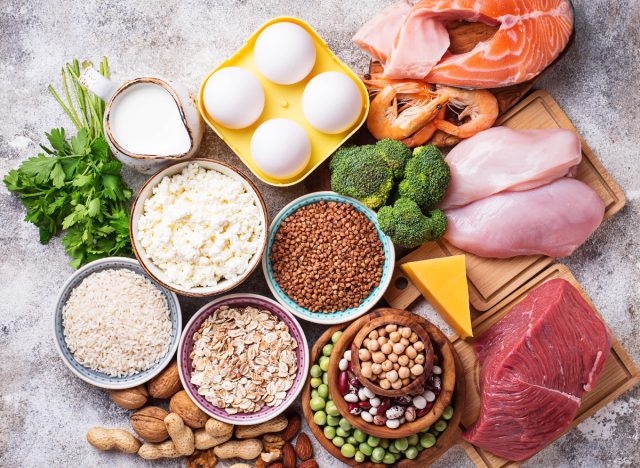
5 Ways Shania Twain Loses Weight at 57 – Let’s Go, Girls! Shania Twain is on tour–her first one in nearly five years–to support her latest album, Queen of Me. But at one point the singer wasn’t sure if she’d ever have a voice again. Due to a long battle with Lyme disease, Twain’s vocal cords were damaged, and she underwent open-throat surgery in 2018. She didn’t sing or put out new music for years. But the country queen is back and after a highly successful Las Vegas residency in 2019, Twain is touring across the United States, Canada, and the United Kingdom and will conclude November 14th in Vancouver. She hit the road back in April and told USA Today, “I feel like my voice is back. It’s different, but it’s strong.”
To get ready for her seven-month-long tour named after her newest album, the 57-year-old revealed she maintains a strict diet high in protein to give her energy to perform, but also because weight “goes on fast, especially now during menopause,” she candidly told the outlet. Here are five ways she stays slim and what nutrition experts think of her regime.

According to USA Today, Twain “attributes her slender form to a strict diet of mostly liquids, primarily protein shakes packed with raw greens, usually spinach or kale.”
What the Expert Says: Nutritionist Rania Batayneh, MPH, author of the bestselling book The One One One Diet, tells us, “Spinach and kale are nutrient-dense leafy greens that can be beneficial when included in a smoothie as part of a balanced diet to support weight management. Spinach and kale in a smoothie can contribute to helping you stay slim, and potentially help minimize bloating for some individuals. Here’s how:
- Hydration: Both kale and spinach have a high-water content, which can contribute to hydration. Staying hydrated can help prevent water retention and bloating.
- Fiber: Kale and spinach are rich in dietary fiber, which can aid digestion and promote regular bowel movements. Adequate fiber intake can help prevent constipation and the discomfort associated with bloating.
- Nutrient Density: Nutrient-dense foods like kale and spinach provide vitamins, minerals, and antioxidants that support overall digestive health. When your digestive system functions well, you’re less likely to experience bloating.
- Gut Health: The fiber in kale and spinach acts as a prebiotic, nourishing the beneficial bacteria in your gut. A healthy gut microbiome is associated with reduced bloating and improved digestion.
- Anti-Inflammatory Properties: Kale and spinach contain compounds with anti-inflammatory properties that may help reduce inflammation in the digestive tract, potentially leading to less bloating.
- Blood Sugar Regulation: The fiber and antioxidants in spinach and kale can help regulate blood sugar levels, which is important for preventing energy crashes and controlling cravings.
- Versatility: Spinach and kale have a mild flavor that can easily be masked by other ingredients in a smoothie. This makes them a versatile addition that can enhance the nutritional profile of your smoothie without significantly altering its taste.”

USA Today reports that the singer eats one normal meal a day and doesn’t snack often.
What the Expert Says: “Avoiding snacking can help you keep weight off and stay fit,” registered dietitian and certified personal trainer Jesse Feder, with My Crohns and Colitis Team, says. “When we snack throughout the day we add hundreds of extra calories to our diets. This can lead to weight gain and other health issues. By limiting or avoiding snacking, you can make sure not to consume too many calories and stay healthy and fit.”

While Twain tries not to snack she will have peanut butter if she needs a boost.
What the Expert Says: “While calorically dense, peanut butter can actually help you stay slim and in shape,” Feder explains. “Peanut butter is a healthy fat that can help keep you full for longer periods of time when paired with a carbohydrate or eaten alone. This is great for preventing the urge to snack or overeat throughout the day.”

In addition to peanut butter, Twain will also have dark chocolate if she needs something quick to munch on.
What the Expert Says: “Dark chocolate is loaded with healthy antioxidants,” Feder states. These antioxidants are great for fighting off inflammation throughout the body which can be making you feel fatigued or sluggish. These antioxidants are also beneficial for heart, skin, and brain health as well as being a mood booster!”
Don’t miss: The 8 Best Exercises To Melt Belly Fat

Twain has always showcased her love for horses whether it’s including the beloved animals in music videos, bringing them out on stage, or showing off her impressive riding skills on social media. “Before tour rehearsals, I was riding horses and now I’m just running around a lot,” she told USA Today.
What the Expert Says: “Horseback riding is great for staying fit and in shape,” Feder says. “When you go horseback riding you need to keep a strong and stable core as well as good posture. Additionally, you need to use your legs to keep a good position on the horse. This is great for building up muscle strength and endurance throughout your body.”

Weight gain during menopause is common for many women, and Twain opened up about her experience. “If I feel like I’m losing too much weight, I’ll eat some more. But I need to watch it for the wardrobe because (weight) goes on fast, especially now during menopause.”
What the Expert Says: Bess Berger, RDN, a women’s health and menopause dietitian at Nutrition by Bess, tells us, “Not a week goes by that I don’t hear from a woman, ‘I’m doing what I’ve always done to slim down. But it’s not working.'” Bess explains, ” This is very common as women enter perimenopause and menopause. In addition, as our estrogen declines, women find if they used to gain weight around their hips, it now goes around the waist. As we get older, our body becomes more particular to what we eat and how we process food. We have to be more strategic as we age.”
Batayneh adds, “For many women going through menopause, managing their weight can become a little bit more challenging. Their bodies are no longer responding to restrictive dieting methods from the past. So, finding a solution is key.”

Twain’s regime while prepping for her tour is high in protein, which can be good for helping prevent weight gain during menopause.
What the Expert Says: Batayneh agrees that protein intake can be beneficial during menopause and says, “The exact protein needs can vary based on individual factors such as age, activity level, and overall health.” She also shares the following reasons why protein is vital during menopause:
- Metabolism Support: Protein has a higher thermic effect on food compared to carbohydrates and fats, which means it requires more energy (calories) to digest and process. This can potentially help boost your metabolic rate and increase the number of calories your body burns at rest.
- Appetite Control: Protein is known to increase feelings of fullness and satiety. Including an adequate amount of protein in your diet can help reduce overall calorie intake by making you feel satisfied and less likely to overeat.
- Preserving Muscle Mass: With age and hormonal changes, there’s a tendency to lose muscle mass, which can lead to a slower metabolism. Protein consumption, especially in combination with strength training or resistance exercises, can help preserve and even build muscle mass. More muscle mass can lead to a higher basal metabolic rate, aiding in weight management.
- Blood Sugar Regulation: Protein can help stabilize blood sugar levels by slowing down the absorption of glucose from carbohydrates. This can help prevent insulin spikes and crashes, which may contribute to weight gain and fat storage.
- Bone Health: While protein itself is not a direct contributor to bone health, consuming enough protein can support muscle strength and physical activity. Engaging in weight-bearing exercises and maintaining muscle mass are important for overall bone health, especially during menopause when bone density may decrease.
- Nutrient Absorption: Protein is necessary for the absorption of various nutrients, including calcium and vitamin D, which are crucial for bone health.”
She adds, “It’s important to note that while protein is beneficial, it’s just one aspect of a balanced diet. In my practice, clients build their meals using The 1:1:1 Formula—ONE protein, ONE carb, and ONE fat at every meal and snack. Menopausal women should also focus on consuming a variety of nutrient-rich foods, including whole grains, fruits, vegetables, healthy fats, and foods that can support their bone health.”









